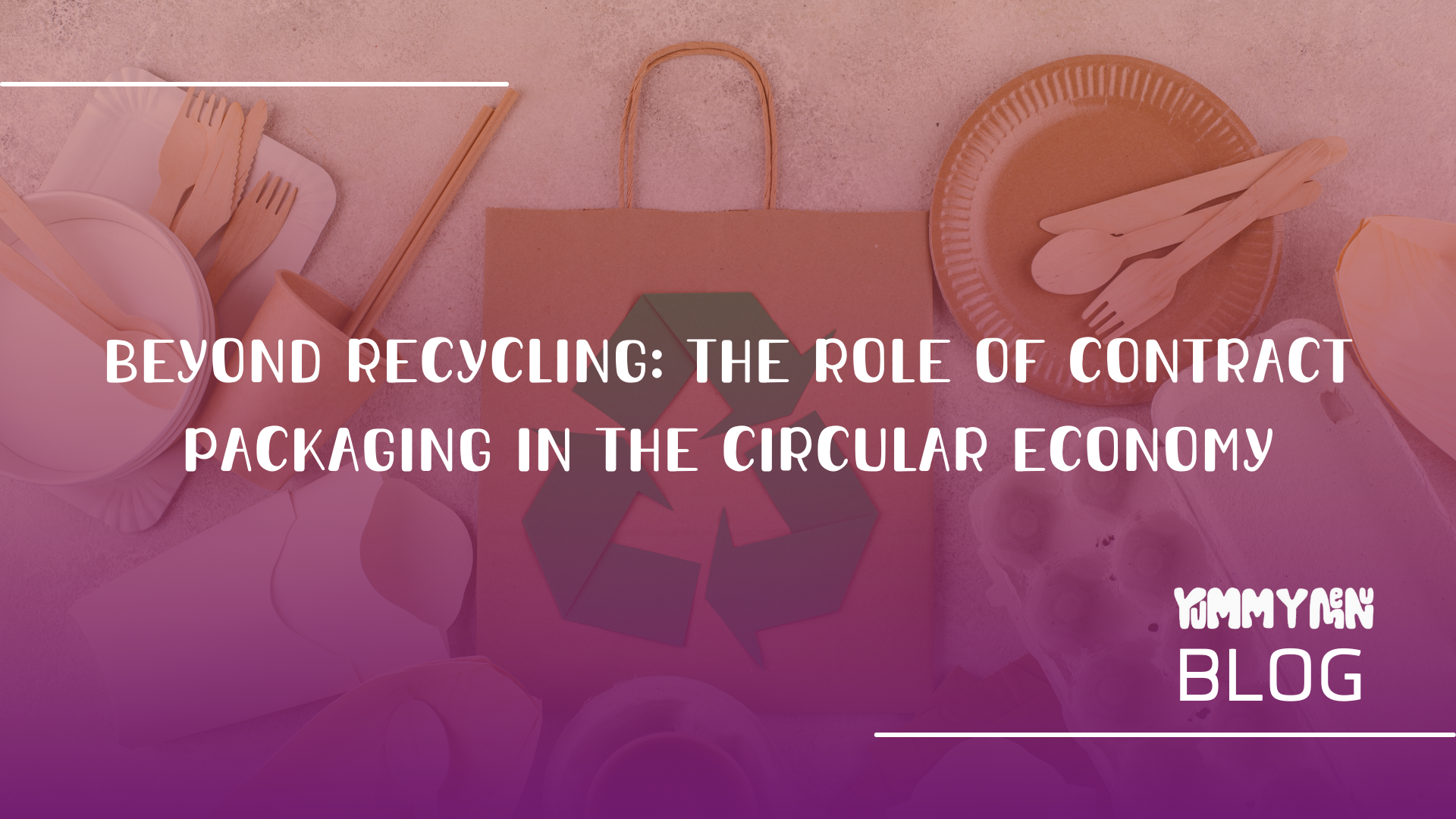
Beyond Recycling: The Role of Contract Packaging in the Circular Economy
As the world grapples with the challenges of waste, pollution, and resource scarcity, the concept of a circular economy has gained prominence. Unlike the traditional linear economy, where products are made, used, and disposed of, a circular economy aims to keep products and materials in use for as long as possible, thus reducing waste and minimizing environmental impact. In this blog post, we'll explore the vital role of contract packaging in advancing the principles of the circular economy.
Understanding the Circular Economy
The circular economy is based on three key principles:
Design for Durability and Reuse: Products are designed to be long-lasting and easy to repair, upgrade, or refurbish. This minimizes the need for constant replacement and disposal.
Recycling and Repurposing: Materials are collected, sorted, and recycled or repurposed into new products. This reduces the demand for virgin resources and minimizes waste.
Resource Efficiency: Businesses aim to use resources more efficiently by reducing waste, conserving energy, and optimizing processes.
While these principles are often associated with the production and disposal of products, they also extend to packaging, a crucial component of nearly every product we encounter.
The Role of Contract Packaging
Contract packaging, also known as co-packing, involves outsourcing the packaging of products to specialized companies. These companies handle various packaging tasks, including design, assembly, labeling, and distribution. Their role is pivotal in the circular economy for several reasons:
Sustainable Packaging Solutions: Contract packaging companies can help brands design and implement sustainable packaging solutions. This includes using eco-friendly materials, reducing excess packaging, and creating reusable or recyclable packaging options.
Minimizing Packaging Waste: By working closely with brands, contract packagers can help optimize packaging designs to reduce waste. This minimizes the environmental impact associated with excess packaging materials and disposal.
Recycling and Repurposing: Contract packaging companies can play a vital role in facilitating the recycling and repurposing of packaging materials. They can ensure that materials are collected, sorted, and sent to recycling facilities, thereby extending the life of these resources.
Efficient Distribution: Efficient packaging and distribution strategies can reduce the carbon footprint associated with transportation. Contract packagers can help streamline packaging to minimize transportation-related emissions.
Innovative Reusable Systems: Some contract packaging companies are exploring innovative reusable packaging systems. These systems involve designing packaging that can be returned, sanitized, and reused, reducing the need for single-use materials.
Case Study: Loop
One notable example of contract packaging's role in the circular economy is Loop, a company that partners with major brands to create reusable packaging systems. Loop offers an innovative approach where customers receive products in durable, reusable containers. Once empty, these containers are picked up, cleaned, and refilled, reducing packaging waste significantly.
The circular economy is not just about recycling; it's about rethinking the entire lifecycle of products and materials. Contract packaging companies play a crucial role in helping brands design sustainable packaging, reduce waste, and facilitate the recycling and repurposing of materials. As consumers and businesses increasingly embrace the principles of the circular economy, the role of contract packaging in promoting sustainability will continue to grow. By working together, brands and contract packagers can contribute to a more sustainable and environmentally responsible future.
